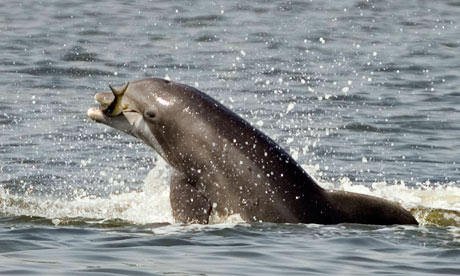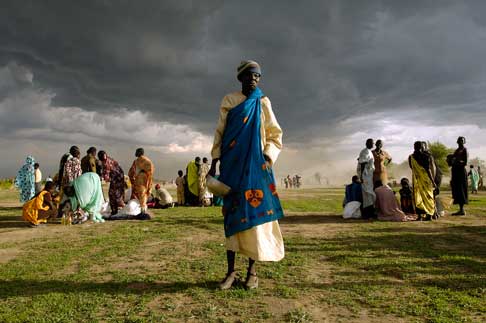Clean Energy vs. Environment?

Turning to renewable energy sources is an effective way to tackle climate change, but does it damage our environment too? A lot of critics say biomass production exploits important land and offshore windparks disrupt the marine habitat.
The German government is trying to find a way to address the offshore windpark problem with a new solution: a sort of bubble-curtain. The problem is, construction in the Baltic Sea produces a lot of noise underwater, and that creates problems for whales and poropoises that use sonar signals for communication. So officials are proposing a type of low-cost technology that would release bubbles from the sea floor and mute a lot of the noise. That way, the drilling and pounding wouldn’t be quite so disruptive and marine life could continue communicating as they do now. If it’s successful, the bubble-curtain idea could be used on several other underwater construction sites!
Green Energy in Chile – Reporters’ Impressions
With some 4000 kilometers of breezy coast lines Chile has enormous potential for windpower. But only recently the country has begun to tap into it. Our reporters went to visit one of the new windfarms. Here they share with us their personal impressions. Click here to watch their report.
Wind power in Vietnam – Reporters’ Impressions
Vietnam’s demand for energy is steadily on the rise. To satisfy demand the country wants to increasingly tap renewable forms of energy, especially wind power. Here are our reporter Peter Wozny’s personal impressions of his trip to Vietnam. Click here to watch his report.
Women in Climate Change Battle

As South Africa prepares for the upcoming climate talks in Durban, the country is also trying to improve its own climate profile by making South Africa a more environmentally-friendly place. And Maite Nkoana-Mashabane, the country’s minister of international relations, says women will need to lead the way.
It’s not the first time women have been described as the key to fighting climate change – and other global issues, for that matter. The UN says women make up the biggest share of the poor across the world. And it’s most often women who are dependent on natural resources to find food, water and energy to take care of their families. So naturally, they end up taking the brunt of the effects of climate change, which makes it harder to get those resources.
Yet women in many parts of the world have little power to effect social, political or economic change. Maite Nkoana-Mashabane says we need to empower the world’s women to make those changes, by giving them the support needed to cope with climate change and listening to their voices. And she says any climate agreement has to take women into account.
Biodiversity Threat

One of our planet’s greatest treasures is its incredible biodiversity: from oceans and jungles to deserts and swamplands, we’re lucky to have such a rich variety of animal and plant species. But environmentalists warn that climate change is rapidly eating away at the world’s biodiversity, especially in coastal regions and rainforests.
One of the answers to that problem has been creating protected habitats. According to a recent report from the Marine Ecology Progress Series, more than 100,000 protected areas – representing about 7 million square miles of land and 1 million square miles of ocean – have been designated in the last five decades.
But despite those conservation efforts, the diversity of species is falling, and fast. That makes one thing clear: creating protected habitats won’t be enough to slow the loss of biodiversity on our planet. Environmentalists say it will take a much bigger effort – and everyone will have to get involved.














Feedback